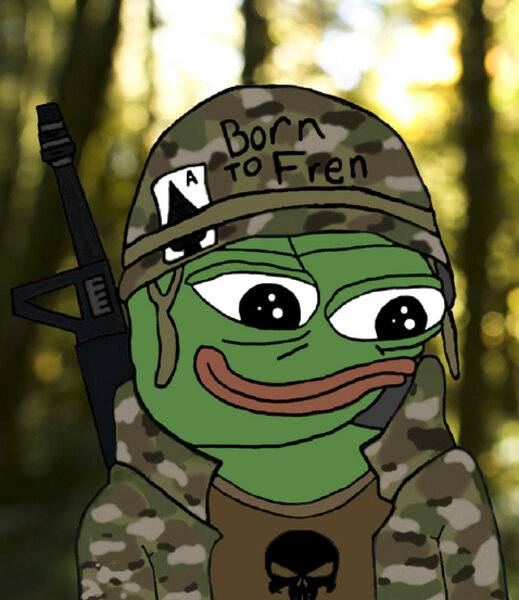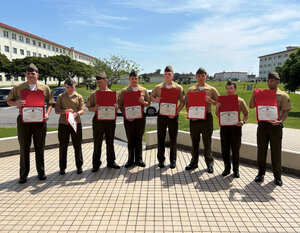Thoughts on my First Year in the Marines
I have been enlisted in the Marines for fourteen months now. First four of those months I was in bootcamp and Marine Combat Training (MCT). This basic training was followed by seven(ish) months in my ‘schoolhouse’ where I specialized into my job in the Marines. After I finished my schoolhouse I got orders to Okinowa Japan which is where I am currently.
I’ve been holding off writing about my experiences until I was through my schoolhouse, but now that I’ve been at my first unit for a few months now I feel that I’ve had enough experience in the Marines to give my first thoughts.
I Should Have Been More Fit Coming into the Marine Corps
I was extremely unfit when I went to bootcamp. I almost failed the Initial Strength Test (IST) when I got to bootcamp and was about 20(ish) lbs over the weight limit. This has led to me getting a lot of “extra attention” from my drill instructors who were constantly reminding me how I was an idiot for coming into the Marines being so unfit. I came out of bootcamp a lot more fit that I came in, but was still very unfit compared to most Marines. I got third class ‘Physical Fitness Test’ (PFT) and ‘Combat Fitness Test’ (CFT) scores which, while passing, are bottom-of-the-barrel scores.
This “extra attention” because of my poor fitness followed me into the schoolhouse and then into the fleet: especially now since I got a TAD (temporary duty assignment) to a unit comprised of mostly Infantry Marines (grunts) with higher standards. It’s extremely important to be fit in the Marines not only because it’s almost impossible to promote to a Non Commissioned Officer (NCO) if one has bad fitness scores, but also because all of our lives depend on the physical fitness of our peers; our branch is often the first to respond to an on-the-ground crisis.
Not being fit coming into the Marines is my main regret so far. A lot of Marines do not respect unfit Marines (rightfully so!) and I’m having to do a lot of extra work to catch up.
It’s Easy to Make Good Friends, but it’s Hard to Stay in Touch After People Get Moved Around.
The age/gender demographics of people joining the Marines are males between the ages of seventeen to twenty-three with some older heads and females sprinkled in. I turned twenty-two when I fist joined which put me in the older 25% of the people coming in, but was not that much older that I had a hard time relating to the other guys around me. There is a lot of social interaction at work, living in barracks, and having a roommate so I never feel lonely. I’ve never had this many friends before
Before I joined the Marines I was a loner with very few friends. Now I have a lot of people to talk to which has improved my outlook on life tremendously.
While I’ve found it easy to make friends being in the Marines, I’ve also found it easy to lose track of people also. When I graduated from bootcamp and my schoolhouse I’ve found it hard to keep in touch with all my friends I made there. It’s easy to forget to stay in touch once you are in a very geographically separate location trying to fit in with a new group of peers.
Staying in Contact With People ‘Back Home’ is Hard
It’s hard to stay in contact with people from past units. It’s harder to stay in contact with friends and family back home. Video calling is helpful, but it’s not the same as physically seeing someone. A lot of Marines in Okinawa will not visit home for their entire time being stationed here. One of my instructors in my schoolhouse noted that when he came back from Okinawa after his three years here he was surprised to see his farther with grey hair.
It can also be hard to relate to civilians and vice-versa. We in active duty live in a bubble that is very different from civilian life. We need to worry less about a lot of things that civilians often worry about (e.g. housing, food, medical, dental), but have to worry more about certain other things (e.g. orders, exercises, sensitive information, gear accountability, restrictions on leave/liberty, danger/risk). Sometimes it’s hard to find a common ground to talk about.
There Are a Lot of Strong and Noble People in the Marines
There is a lot of Marines that will go at great lengths to help their peers and those under then. Many of my peers and NCO’s above me have spent a huge amount of time helping me learn a skill when I was struggling with, carried weight that I was unable to handle, and have fixed things I messed up. No Marines Left Behind is a motto a lot of Marines live by: and I’m grateful to every one of them that do. Comradeship is huge in the Marines.
There is also, Unfortunately, a Lot of Vice in the Marine Corps Culture
There is a lot of excessive drinking, swearing, sleeping around, gambling, pornography, prostitution that a lot of my peers engage in that I don’t believe is right. Most of my peers do not go to Church, and those of us that do usually don’t throw judgement.
I have many of my own moral struggles and failings. I’ve engaged in many of the activates above while being in the Marines that I have regrets about. I need to be stronger and need to be able to resist peer pressure.
There is a Good Community Orthodox Christians in Okinawa
I’ve been pleasantly surprised that there is a Greek Orthodox Church on one of the bases Okinawa. A few of my peers from my unit also go there to worship which was also a good surprise. I’ve recently started to go and am planning to get a lot more involved at the church.
Unfortunately, I failed to go to Church when I was at my schoolhouse even as there was a Orthodox Church less than 10 minutes from the base that I was at. It’s easy to not go to church as, as I’ve already mentioned, most Marines don’t go church.
Being in the Marines is Making Me More Confident
We are privileged to be pushed to do a lot of hard things in the Marines. From physical/tactical tasking like rucking/patrolling to more soft-skills such as public speaking and ’taking initiative’ we are pushed to grow. Doing these tasks better over time has improved my self confidence a lot.
Becoming more more fit and the Marines forcing me to improve my hygiene has also improved my self-image. I can look in the mirror and not be disgusted by myself.


